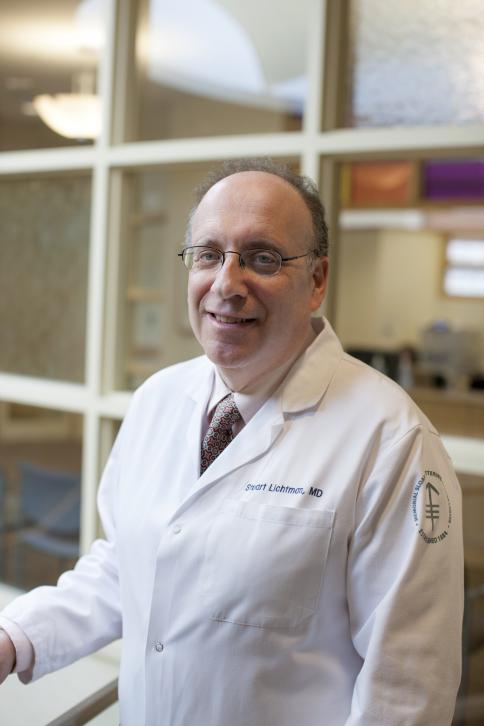
Stuart Lichtman, MD, is an attending physician at Memorial Sloan Kettering Cancer Center in New York City and Professor of Medicine at Weill Cornell Medical College. Dr. Lichtman is President-Elect of the International Society of Geriatric Oncology (SIOG).
The population of the United States is aging. About 10,000 baby boomers, people born after the end of World War II, turn 65 years old every day. This means that there is an ever increasing number of older people with cancer. For many years, we’ve known that the risk for developing cancer increases as people get older. Unfortunately, less is known about the best way to treat cancer in older adults.
Older patients, their families, and caregivers should consider participating in cancer studies. Through research, they can get high quality care for themselves and contribute to advances in care for older patients. 
The problem of older adults and clinical trials
Not enough older patients have been included in research studies. This means that research does not provide the information that doctors need to make important treatment decisions for older adults.
There are a number of reasons why more older adults aren’t participating in cancer research. Sometimes older adults are not able to participate because the study was developed with certain restrictions. For example, the study may have a maximum age for participants or not allow patients with a prior history of cancer. Such restrictions can keep many older adults from joining. In many cases, older patients do not want to participate because of a fear of side effects or concern over taking an unproven therapy. Some people do not want be “experimented on” or believe that they are too old. In addition, doctors sometimes do not recommend studies to older patients because they view the study as too complicated, too dangerous, or of little benefit to older patients. As a result, patients participating in research studies are often healthier and 10 to 15 years younger than the average patient.
What is being done to increase older adult participation?
Researchers are trying to make studies more “elder friendly.” This means that the study has more flexible requirements, so patients are more willing to participate. For example, studies need to consider both the patient and the caregiver. Caregivers often have to take patients to their office visits, fill prescriptions, and handle home care needs. “Elder-friendly” studies do not have an age limit that keeps older adults from participating. In addition, these studies usually have different requirements for laboratory work and radiation therapy that are more realistic and manageable for older adults.
As part of a research study, all participants must undergo an initial evaluation. For older adults, this evaluation should include elder-specific issues. An elder-specific evaluation looks into things like ability to walk, history of falls, memory, social support, and whether a person can take care of himself or herself. Knowing this information has allowed researchers to predict how well older adults will be able to handle a treatment’s side effects and how well the treatment will work.
Want to become more involved in research?
Older adults who are interested in participating in a clinical trial need to advocate for their own treatment. Ask your oncologist about what options are available when you need to start or change treatment. You can also research clinical trials yourself on the internet. Sometimes the online information about clinical trials is too complex. If you have trouble understanding what you read online, don’t be afraid to ask someone on your care team to help clarify the details for you.
Not all research focuses on new cancer drugs. Studies can examine how to treat symptoms, too. Or they may study tumor tissue to look for specific genetic changes. Researchers can look at new ways of using radiation therapy or surgical techniques. Ultimately, talking with your doctor is the most important way to help you decide if a certain study is right for you. Be sure to discuss how much of your time you will need to commit to the study.
Clinical trials often require more testing than routine medical care. You may need more office visits, blood tests, or imaging scans. This may require more schedule changes for your caregiver, too. Discuss with your care team how you may potentially benefit from the research and what safety issues are possible. If this is a new treatment, are the safety issues well known? Will participating in this study prevent you from having additional therapies?
Patients must provide informed consent to participate. The consent form describes the study, the schedule, the potential benefit, and potential risks. These forms are often long and complicated, so it is best to have someone with you to help read and understand the consent forms. Take the time you need to answer the questions. You should not feel pressured to participate if you don’t want to.
